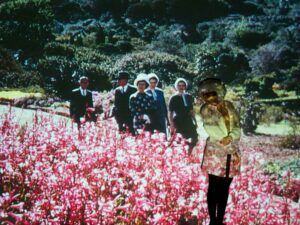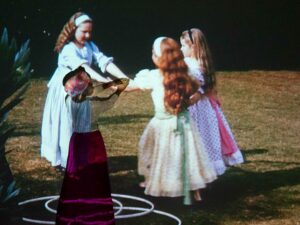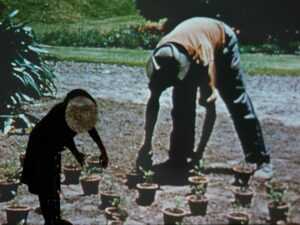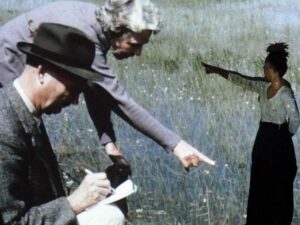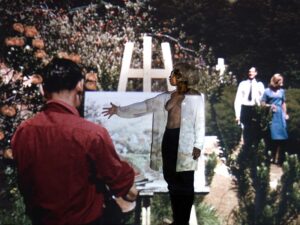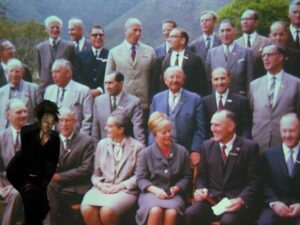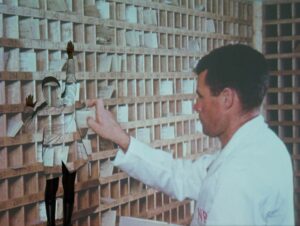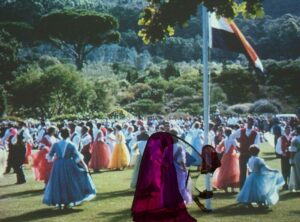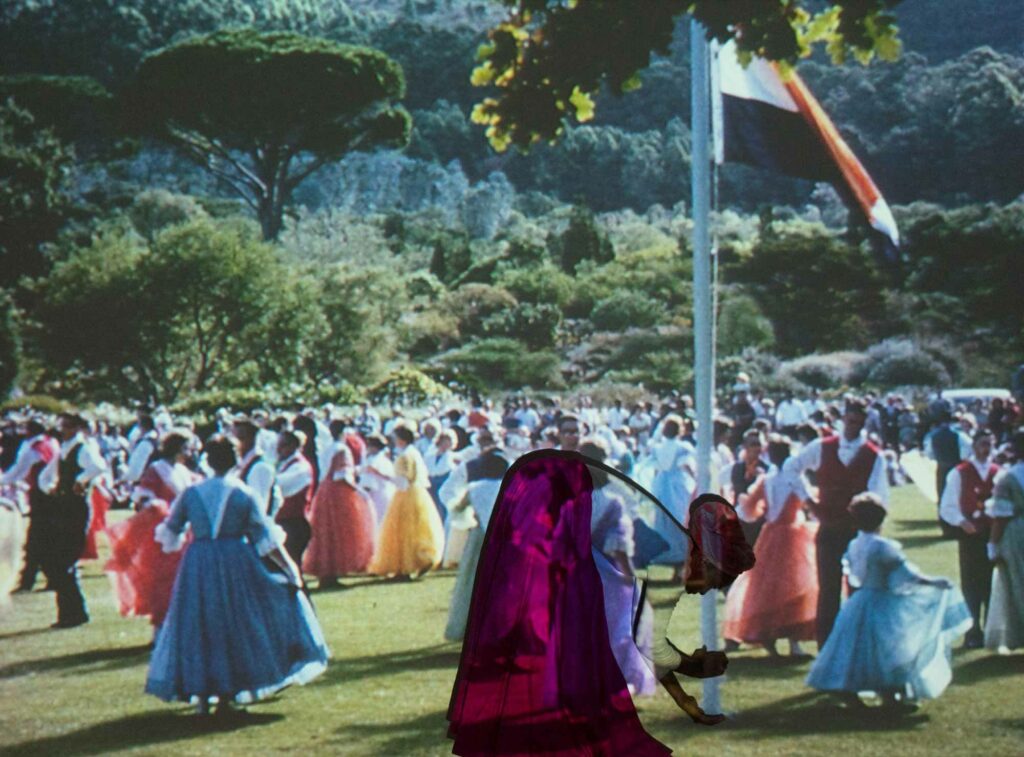
The Fairest Heritage
2016/17
Single-channel video, 5’22”, stills
In 1963, on the occasion of the 50th anniversary of the founding of Kirstenbosch, the national botanical garden of South Africa in Cape Town commissioned a series of films to document the history of the garden, the Cape Floral Kingdom, and the jubilee celebrations with their national dances, pantomimes of colonial conquests, and visits from international botanists. The films’ protagonists – the scientists and visitors etc. – are all white; the only Africans featured are labourers. Considered neutral and passive, flowers were excluded from the boycott until the late 1980s and so botanical nationalism and flower diplomacy flourished unchecked at home and internationally.
The films have not been seen since 1963 and were found by the artist in the cellar of the library of the botanical garden. Orlow collaborated with actor Lindiwe Matshikiza who puts herself and her body in these loaded pictures, inhabiting and confronting the found footage and thus contesting history and the archive itself.
Uriel Orlow
Uriel Orlow lives and works between London and Lisbon. He studied at Central Saint Martins College of Art & Design London, the Slade School of Art, University College London and the University of Geneva, completing a PhD in Fine Art in 2002. His practice is research-based, process-oriented and multi-disciplinary including film, photography, drawing and sound. He is known for single screen film works, lecture performances and modular, multi-media installations that focus on specific locations and micro-histories and bring different image-regimes and narrative modes into correspondence. His work is concerned with residues of colonialism, spatial manifestations of memory, blind spots of representation and plants as political actors.
Orlow’s work has been presented in many international survey shows including Lubumbashi Biennial in 2019, Manifesta 12 in 2018, Sharjah Biennial 13 in 2017. His work has also been shown internationally in museums and galleries including Tate Modern and Whitechapel Gallery in London, Palais de Tokyo in Paris, Kunsthaus Zurich and Centre d’Art Contemporain, Geneva amongst others. Orlow’s films have been screened at the Oberhausen Short Film Festival; the Locarno Film Festival; Videoex, Zurich, Switzerland; Centre Pompidou, Paris; BFI, London; Kino der Kunst, Germany, and elsewhere.

